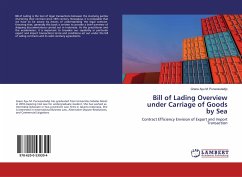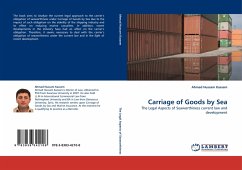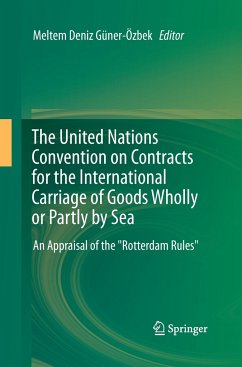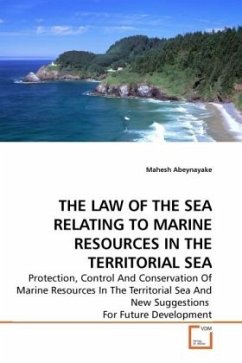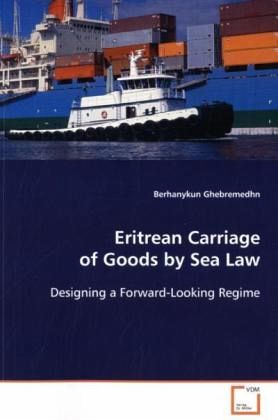
Eritrean Carriage of Goods by Sea Law
Designing a Forward-Looking Regime
Versandkostenfrei!
Versandfertig in 6-10 Tagen
45,99 €
inkl. MwSt.

PAYBACK Punkte
23 °P sammeln!
The geopolitical location of Eritrea makes it animportant shipping route. Since independence, it hasembarked on a major rehabilitation and expansion ofits transportation network. It has also begun toreform its legislation on the carriage of goods bysea in light of its economic interests in shipping,accommodate the interests of its trading partners,facilitate operation of the carriage contract, and tobe relevant to the legal implications of ongoingdevelopments in shipping technology. But thus far,the reform reflects the British Carriage of Goods bySea Act, 1971. This monograph analyses the exis...
The geopolitical location of Eritrea makes it an
important shipping route. Since independence, it has
embarked on a major rehabilitation and expansion of
its transportation network. It has also begun to
reform its legislation on the carriage of goods by
sea in light of its economic interests in shipping,
accommodate the interests of its trading partners,
facilitate operation of the carriage contract, and to
be relevant to the legal implications of ongoing
developments in shipping technology. But thus far,
the reform reflects the British Carriage of Goods by
Sea Act, 1971. This monograph analyses the existing
Eritrean, and the new draft shipping law in light of
other relevant national laws, regional and
international conventions, and jurisprudence, and
sets out detailed recommendations that the emergent
law must accommodate in order to serve its reform
objectives. This work will not be of interest to only
maritime law students,academics and practitioners,
but also to Eritrean law and policy makers, the
international shipping community and, in view of the
quickening pace of African economic integration,
other African states especially those in eastern
Africa.
important shipping route. Since independence, it has
embarked on a major rehabilitation and expansion of
its transportation network. It has also begun to
reform its legislation on the carriage of goods by
sea in light of its economic interests in shipping,
accommodate the interests of its trading partners,
facilitate operation of the carriage contract, and to
be relevant to the legal implications of ongoing
developments in shipping technology. But thus far,
the reform reflects the British Carriage of Goods by
Sea Act, 1971. This monograph analyses the existing
Eritrean, and the new draft shipping law in light of
other relevant national laws, regional and
international conventions, and jurisprudence, and
sets out detailed recommendations that the emergent
law must accommodate in order to serve its reform
objectives. This work will not be of interest to only
maritime law students,academics and practitioners,
but also to Eritrean law and policy makers, the
international shipping community and, in view of the
quickening pace of African economic integration,
other African states especially those in eastern
Africa.





